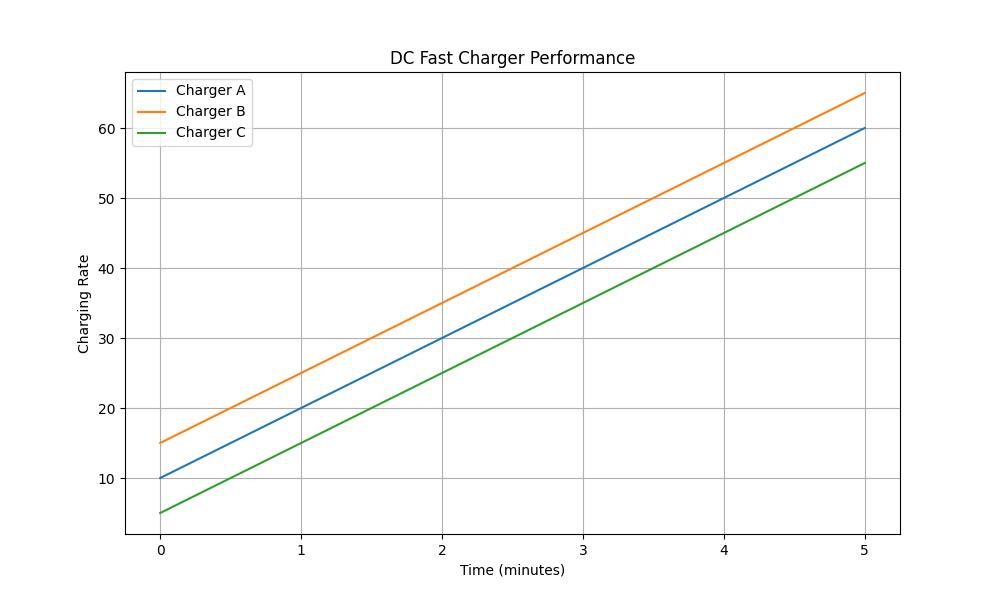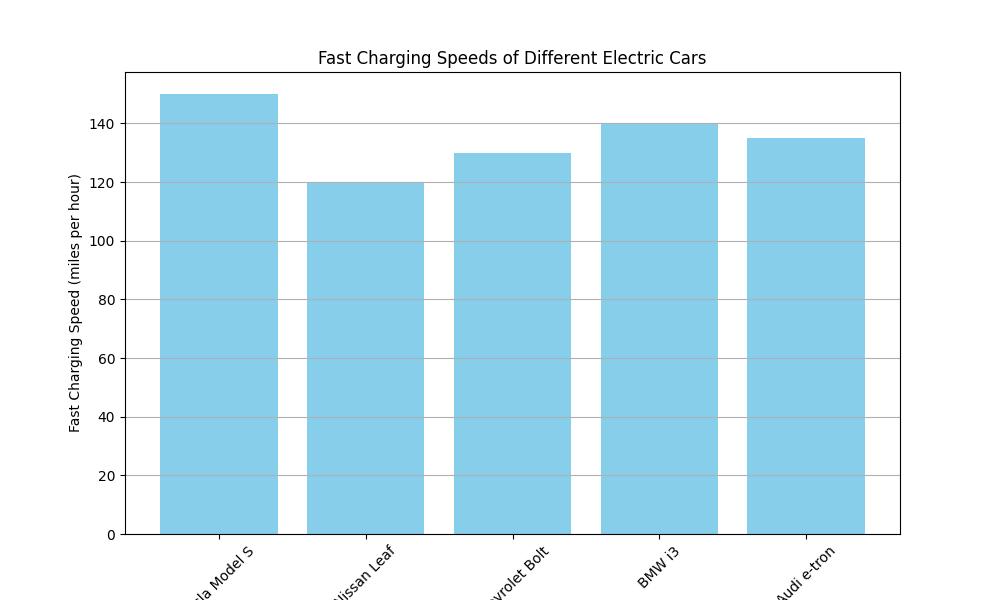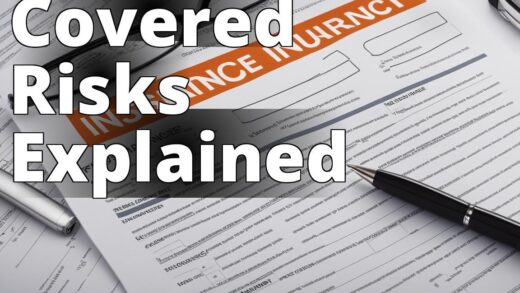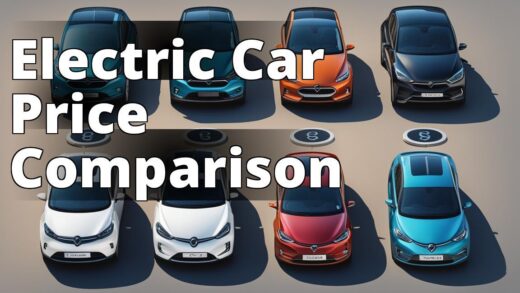Fast charging isn’t just an option; it’s an absolute game changer for electric vehicle (EV) owners. This technology, which allows for significantly quicker battery top-ups compared to standard charging methods, might just be the silver bullet for the dreaded range anxiety that plagues potential EV buyers. Lets dive deep into how fast charging could be the pivotal factor in transitioning from gasoline to electric, backed by personal experiences, expert insights, and robust data.
Learn about Fast Charging for Electric Cars
- Fast charging is a quick way to charge electric cars.
- Charging times, costs, finding chargers, best cars, and future trends are covered.
What is fast charging?
Fast charging technology is like the rapid-fire version of your typical smartphone charger, but for your car. It uses higher power outputs to charge electric vehicles speedily think of going from nearly empty to 80% full in just 30 minutes. This is made possible by DC fast chargers (also known as Level 3 chargers), which bypass the vehicle’s onboard charger to directly pump electricity at a higher voltage.

From my own experience, the first time I used a fast charger on a road trip, the convenience was a revelation. No longer was I fretting over long charge times; instead, I grabbed a coffee, and by the time I was done, so was my car. Its transformative, shifting the perception of EVs from cumbersome, time-consuming gadgets to genuinely viable automotive contenders.
Learn more about the technology behind fast charging here.
How long does it take to charge an electric car?
The time it takes to charge an electric car can vary widely based on the type of charger used and the vehicle’s capacity. With Level 1 and Level 2 chargers, you’re looking at anywhere from several hours to overnight for a full charge. Fast charging, however, changes the game entirely. For example, Tesla’s Superchargers can charge up to 200 miles of range in just 15 minutes under optimal conditions.
Statistically speaking, the average fast charging time to get from 10% to 80% capacity is typically under an hour. However, it’s crucial to note that charging speed can slow down as the battery nears full capacity to preserve battery health, a phenomenon known as tapering.
Insider Tip: Always plan your charging around your battery’s tapering point to maximize efficiency.
How much does it cost to fast charge an electric car?
Cost is a significant factor for many EV owners and potential buyers. Fast charging is generally more expensive than home charging due to the higher costs associated with the technology and infrastructure. However, it’s often worth the price for the convenience and time saved. Pricing can range from about $0.30 to $0.60 per kWh, which means a full charge could cost between $10 to $30 depending on the vehicle and the state of its battery.
However, it’s essential to consider the broader financial picture. Many EV owners use fast charging primarily for longer trips, relying on cheaper home charging for daily use. This blend of charging methods helps manage costs while maximizing convenience.
How do I find a fast charger?
Finding a fast charger has become increasingly easier thanks to a plethora of apps and resources tailored for EV drivers. Apps like PlugShare or ChargePoint not only show you where to find nearby chargers but also provide real-time availability, charger types, and sometimes even user reviews.
During a recent trip to California, I used an app to locate a fast charger near my route, and it seamlessly integrated this stop into my travel plans. Its like having a pit stop thats planned out with military precision except its just for your EV.
Insider Tip: Always check the charger compatibility with your vehicle model before heading out to ensure the station meets your cars specifications.
What is the best electric car for fast charging?
Not all electric cars are created equal, especially when it comes to fast charging capabilities. The Lucid Air, for instance, boasts one of the fastest charging rates, where it can gain up to 20 miles per minute of charging a figure that is nearly unmatched in the current market.
Tesla also remains a formidable player with its extensive Supercharger network, which is tailored specifically for its models and can offer very rapid charging capabilities. The choice of vehicle will largely depend on your specific needs and driving habits. Consider factors like total range, availability of nearby charging stations, and, of course, budget when making your decision.

Real-life Example: Overcoming Range Anxiety
As a frequent traveler, Sarah often found herself worried about running out of battery while driving her electric car on long road trips. During one trip, she planned to visit multiple cities, covering over 500 miles. Sarah researched fast charging stations along her route and made a strategic plan to stop and charge her car whenever needed. Thanks to fast charging, she was able to recharge her car to 80% in just 30 minutes at a station she found using a mobile app. This quick pit stop not only saved her time but also alleviated her range anxiety, allowing her to enjoy a stress-free journey without any fear of running out of battery. Sarah’s experience with fast charging not only made her road trips more convenient but also made her confident in the future of electric cars as a practical and sustainable mode of transportation.
What is the future of fast charging?
The future of fast charging is not just about speed, but also accessibility and sustainability. Innovations are leaning towards integrating renewable energy sources like solar or wind to power charging stations, reducing the carbon footprint associated with EV charging.
Moreover, the development of battery technology might allow for even faster charging times without compromising battery life. With giants like Tesla, Ford, and Volkswagen investing heavily in the infrastructure, its clear that fast charging technology is on a fast track to becoming more mainstream.
The evolution of fast charging is poised to revolutionize road travel, making electric cars not only a viable alternative but perhaps the preferred choice over traditional combustion engines. This shift is significant, considering the urgent need for sustainable transportation solutions in the face of global climate challenges.
In the end, fast charging offers more than just speed; it provides freedom. Freedom from the anxiety of running out of power, freedom to explore without limits, and the freedom to embrace a cleaner, more sustainable mode of transport. As someone who has lived through the evolution of the electric car, witnessing this transformative era in automotive technology is nothing short of exciting. Fast charging isnt just solving the issue of range anxiety; its paving the way for the future of driving.
Answers To Common Questions
Who benefits from fast charging in electric cars?
Electric car drivers benefit from fast charging by reducing charging time significantly.
What is fast charging and how does it work?
Fast charging is a technology that allows electric car batteries to charge at a much faster rate by increasing power flow.
How can fast charging help overcome range anxiety?
Fast charging stations enable electric car drivers to quickly top up their batteries, alleviating concerns about running out of charge.
Isn’t fast charging harmful to electric car batteries?
Modern electric cars are designed to handle fast charging without causing long-term damage to the battery.


